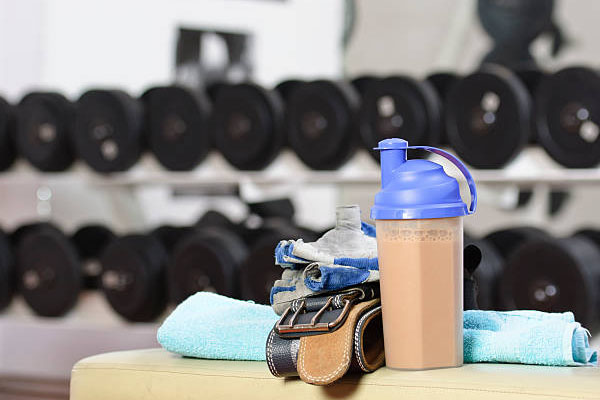Discover the facts about sports supplements and their impact on athletic performance Explore their safety, effectiveness, and how to make informed choices for enhanced results
Sports supplements have gained popularity among athletes and fitness enthusiasts looking to boost their performance and achieve their goals. These supplements, often marketed with promises of enhanced strength, endurance, and overall athletic prowess, have become a significant part of the fitness industry. However, the question that looms large is, "Are sports supplements safe and effective for performance enhancement?" Let's delve into this topic to understand the ins and outs of sports supplements, their benefits, potential risks, and the best practices for safe and effective use.
In this comprehensive exploration, we will dissect the world of sports supplements, examining their impact on performance, recovery, and endurance. We will also take a closer look at the potential risks and side effects associated with their use. The article will discuss regulatory oversight, common ingredients to watch out for, and the interaction of sports supplements with medications. To provide a holistic perspective, we will delve into what scientific research says about the effectiveness of these supplements, discussing key studies and the role of the placebo effect in athlete perception.
Furthermore, we will offer guidance on how to safely incorporate sports supplements into your fitness regimen. This section will emphasize the importance of consulting with healthcare professionals, choosing reputable brands, and understanding proper dosage and timing. The article aims to provide readers with the information they need to make informed decisions about the use of sports supplements.
Finally, to address common queries and concerns, we will present a series of frequently asked questions (FAQs) about sports supplements. These FAQs will cover safety, effectiveness, potential side effects, and more, ensuring that readers have a clear understanding of this often-discussed topic.
As we navigate through this article, we encourage you to approach the subject of sports supplements with an open mind and a critical perspective. Making informed decisions about supplement use is essential to ensure your safety, health, and the achievement of your fitness and performance goals.
Now, let's begin our exploration of the world of sports supplements, seeking to answer the question, "Are sports supplements safe and effective for performance enhancement?"

Benefits of Sports Supplements
1. Performance Enhancement
Performance-enhancing sports supplements can provide athletes and fitness enthusiasts with several advantages:
- Improved strength and power output
- Enhanced endurance and stamina
- Increased speed and agility
- Enhanced focus and concentration
These benefits can be crucial for athletes looking to gain a competitive edge in their respective sports.
2. Recovery and Muscle Growth
Another significant aspect of sports supplements is their potential to support recovery and muscle growth:
- Quicker muscle recovery after intense workouts
- Reduced muscle soreness and fatigue
- Promotion of muscle protein synthesis
- Support for lean muscle mass development
These benefits can aid in faster post-exercise recuperation and improved muscle development.
3. Energy and Endurance
Sports supplements also play a crucial role in boosting energy levels and endurance:
- Increased energy availability for workouts
- Extended workout duration and reduced fatigue
- Enhanced aerobic and anaerobic capacity
Improved energy and endurance can lead to more effective training sessions and overall athletic performance.
Potential Risks and Side Effects
1. Regulatory Oversight
Understanding the regulatory landscape of sports supplements is crucial for athletes and consumers:
- Examination of FDA regulations and labeling requirements
- Importance of third-party testing and certification
- Differentiating between dietary supplements and pharmaceuticals
Being aware of regulatory oversight helps ensure the safety and quality of supplements.
2. Common Ingredients to Watch Out For
Many sports supplements contain various ingredients, some of which may pose risks:
- Caffeine: Potential for overstimulation and heart palpitations
- Ephedra: Associated with cardiovascular and nervous system issues
- Synthetic hormones: Risk of hormonal imbalances
- Contaminants and fillers: The importance of product purity
Identifying and understanding these common ingredients can help users make informed choices.
3. Interactions with Medications
It's crucial to be aware of potential interactions between sports supplements and medications:
- Interference with prescription drugs and over-the-counter medications
- Possible adverse reactions and reduced medication effectiveness
- Consulting with a healthcare professional before supplement use
Understanding how supplements can interact with medications ensures your safety and well-being.
Effectiveness: What the Research Says
1. Scientific Studies on Key Supplements
Scientific research plays a crucial role in determining the effectiveness of sports supplements. Explore various studies and findings:
- Overview of clinical trials and peer-reviewed research
- Studies on the impact of supplements on athletic performance
- Research outcomes on muscle growth and recovery enhancement
- Evidence supporting cognitive and endurance benefits
Understanding the scientific backing behind sports supplements is essential for making informed decisions.
2. Placebo Effect and Athlete Perception
It's important to consider the placebo effect and athlete perception when evaluating supplement effectiveness:
- Explanation of the placebo effect and its influence on perceived benefits
- How athlete beliefs and expectations can impact performance
- Differentiating between real physiological effects and psychological factors
Recognizing the role of perception and the placebo effect helps in interpreting the effectiveness of sports supplements accurately.
How to Safely Use Sports Supplements
1. Consulting with a Healthcare Professional
Before incorporating sports supplements into your regimen, consider the importance of consulting with a healthcare professional:
- Discussion of your individual health status and goals
- Assessment of potential contraindications with existing medical conditions or medications
- Customized recommendations for supplement use based on your needs
Consulting with a healthcare professional ensures the safe integration of supplements into your fitness routine.
2. Choosing Reputable Brands
Selection of reputable brands is critical to guarantee product quality and safety:
- Researching and identifying trustworthy supplement manufacturers
- Reviewing certifications and third-party testing for quality assurance
- Avoiding counterfeit or adulterated products in the market
Choosing reputable brands reduces the risk of harmful or ineffective supplements.
3. Proper Dosage and Timing
Understanding the correct dosage and timing of supplement intake is essential for maximizing benefits and minimizing risks:
- Establishing appropriate daily intake based on your goals and body weight
- Optimal timing of supplement consumption, such as pre-workout, post-workout, or daily use
- Monitoring potential interactions with other supplements or food
Adhering to proper dosage and timing guidelines ensures safe and effective use of sports supplements.
FAQs (Frequently Asked Questions)
Q1: Are sports supplements safe for athletes of all ages?
A: The safety of sports supplements can be influenced by individual health conditions, age, and the specific supplement being used. It's essential to consult with a healthcare professional, especially for younger athletes. Safety considerations should be tailored to each individual's unique circumstances.
Q2: Can sports supplements lead to doping violations in professional sports?
A: Some sports supplements may contain banned or prohibited substances, potentially resulting in doping violations in professional sports. To avoid such issues, choose supplements from reputable brands, check for third-party testing, and stay informed about the World Anti-Doping Agency's list of prohibited substances. Always adhere to the guidelines of your sports organization to remain compliant.
Q3: How do I know if a sports supplement is effective for me?
A: The effectiveness of a sports supplement can vary from person to person. To assess its effectiveness, set clear fitness or performance goals, consult with a healthcare professional, and consider existing scientific evidence supporting the supplement's claims. Additionally, monitor your own progress and any improvements in your performance to gauge the supplement's effectiveness for your specific needs.
Q4: What are some common misconceptions about sports supplements?
A: There are several misconceptions about sports supplements. One common myth is that they provide instant results, whereas they should be seen as part of a holistic training and nutrition regimen, and results may take time. Another misconception is that more is always better; however, excessive supplement intake can be harmful. Follow recommended dosages and guidelines for safe use.
Q5: Are there natural alternatives to sports supplements for performance enhancement?
A: Yes, there are natural alternatives to sports supplements that can aid in performance enhancement. These include a well-balanced diet, proper hydration, adequate rest, and regular exercise. Many athletes achieve significant gains through natural means. However, individual needs and goals vary, so consider these factors when deciding whether to use supplements or rely on natural methods.
Q6: What should I look for in reputable sports supplement brands?
A: When choosing sports supplement brands, look for factors such as third-party testing, quality certifications, and positive user reviews. Reputable brands transparently display information about their manufacturing processes and ingredient sourcing. Consider consulting with a healthcare professional or a nutritionist for recommendations as well.
Q7: How do I determine the appropriate dosage for sports supplements?
A: To determine the right dosage, follow the recommended guidelines provided by the supplement manufacturer. Factors like age, weight, and specific goals can influence the dosage. Consult with a healthcare professional or a registered dietitian to tailor the dosage to your individual needs safely.
Q8: Can I mix multiple sports supplements for better results?
A: Mixing multiple supplements should be done with caution. Combining certain supplements can have unpredictable effects or lead to overdose. Consult with a healthcare professional before combining supplements to ensure safety and effectiveness. It's important to understand potential interactions between the supplements you plan to mix.
Q9: Are there any sports supplements specifically recommended for endurance athletes?
A: Yes, some supplements are commonly recommended for endurance athletes, such as branched-chain amino acids (BCAAs) and electrolyte replacements. These can help maintain energy levels, delay fatigue, and support hydration during prolonged exercise. However, it's essential to consult with a healthcare professional or a sports nutritionist to determine which supplements are suitable for your specific needs.
Q10: What are the potential side effects of sports supplements?
A: The potential side effects of sports supplements can vary depending on the supplement and individual factors. Common side effects may include digestive issues, nausea, or overstimulation. In some cases, serious side effects can occur, especially with excessive use or certain ingredients. It's crucial to be aware of the potential risks and consult with a healthcare professional if you experience adverse effects.








